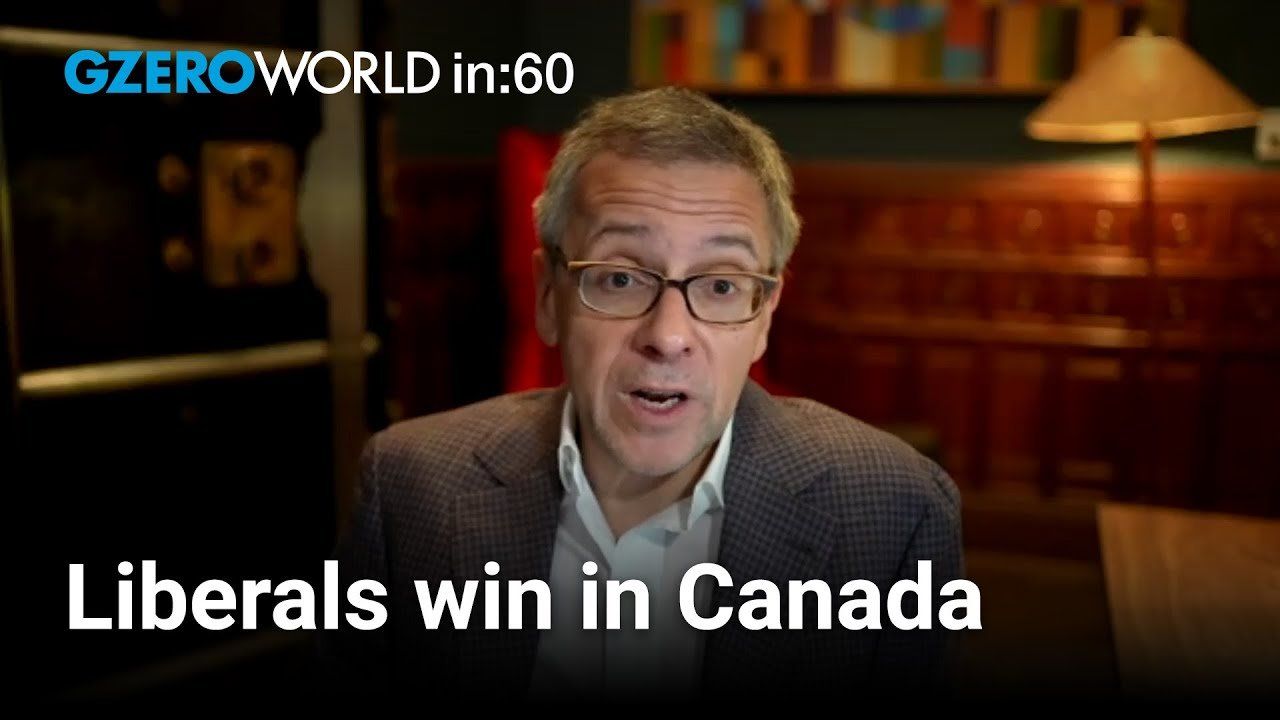Ian Bremmer shares his insights on global politics this week on World In :60.
Mark Carney leads the Liberals to victory in Canada. So, what's next for the US-Canada relationship?
I think sometimes you have relationship with somebody, and they do something that shocks you, you can't unsee it, I think US-Canada is like that now. I think the damage is permanent. Of course, the interdependence is immense. The dependence on the Canadian side is higher. They're a much smaller country. Their population is right next to the United States. Just a thin strip there. So, it's not like you can suddenly decouple, but there's going to be a lot of de-risking. So, strong efforts, very tough negotiations coming on trade and on security, but also an effort to build infrastructure and ship Canadian resources away from the United States, towards other countries around the world. Medium-term, that's going to be a pretty significant change in how we think about Canada.
The conclave will pick the next pope. How is it relevant for the wider geopolitical landscape?
It's relevant because, increasingly, political leaders do not inspire. So, here you have a population as large as any country, about 1.4 billion Catholics all over the world, just like India, just like China. That's the size of the global population. If the next pope that is picked is someone who is inspirational, is someone that is seen as a 21st century leader that can reflect sensibilities and ideology, values that are not seen from political leaders around the world, in your own countries, then the ability to have an impact on what gets young people out, and motivated, and inspired and engaged in public service or on the streets, and mobilized, and demonstrating becomes significant. So, I do think there's a real opportunity here, but we'll see what it means when we finally see white smoke coming out of the Vatican.
More For You
Ian Bremmer sits down with former US Ambassador to NATO Ivo Daalder to unpack a historic shift in the transatlantic alliance: Europe is preparing to defend itself without its American safety net.
Most Popular
Think you know what's going on around the world? Here's your chance to prove it.
Argentina, Armenia, Belarus, Egypt, Indonesia, Jordan, Pakistan, Paraguay, Vietnam – to name only a few.
A poster featuring Andrew Mountbatten-Windsor, formerly known as Prince Andrew, is installed on a sign leading to the parking area of the Sandringham Estate in Wolferton, as pressure builds on him to give evidence after the U.S. Justice Department released more records tied to the late financier and convicted sex offender Jeffrey Epstein, in Norfolk, Britain, February 5, 2026.
British police arrested former Prince Andrew Mountbatten-Windsor today over allegations that in 2010, when he was a UK trade envoy, he shared confidential government documents with convicted sex offender Jeffrey Epstein.
